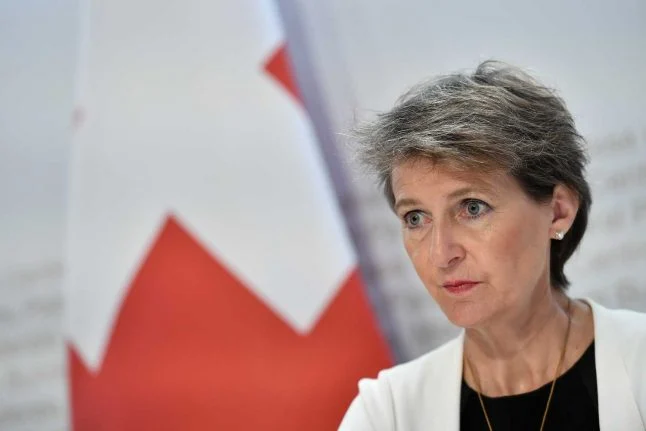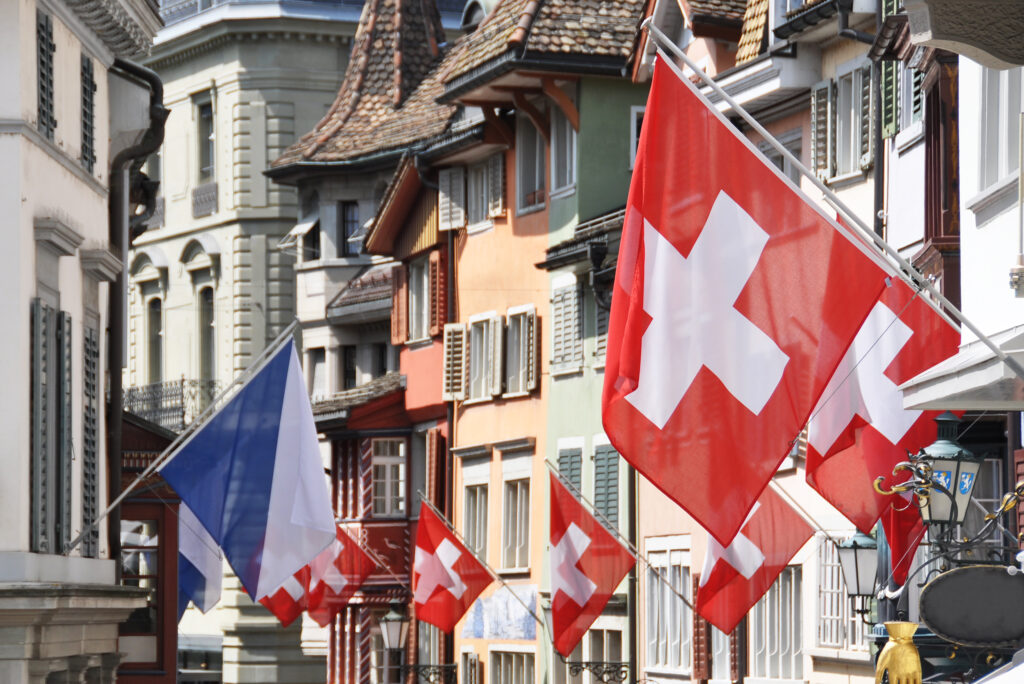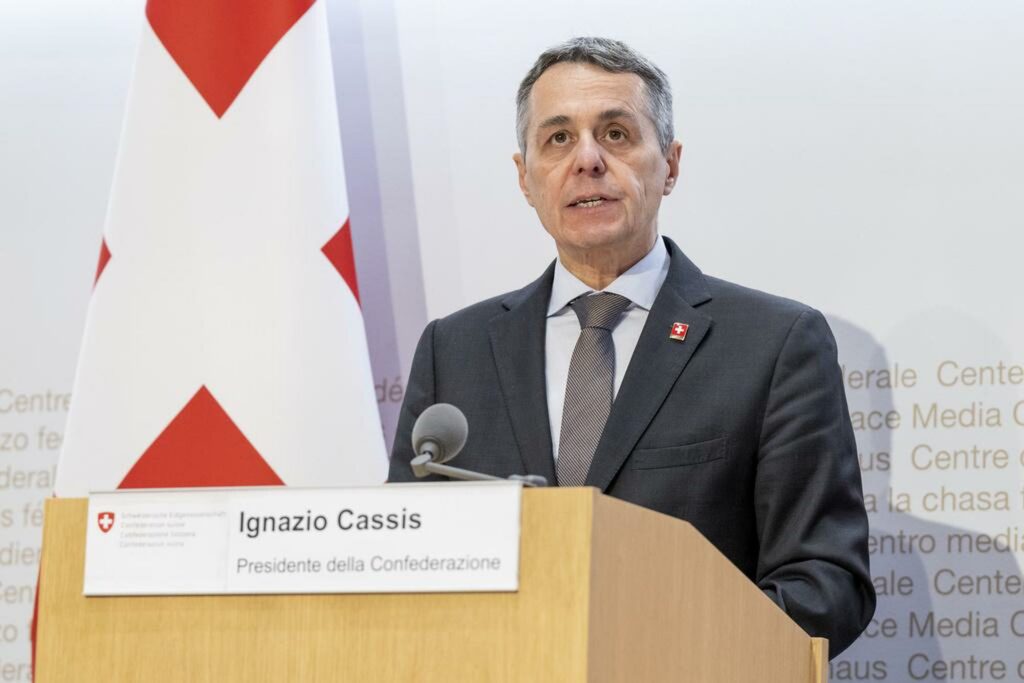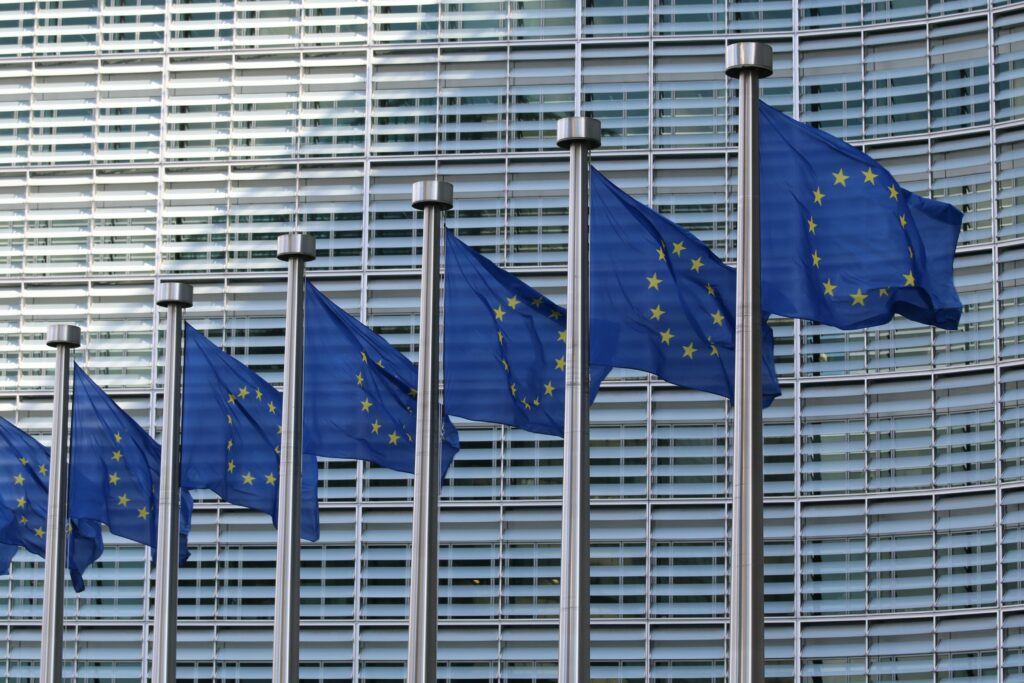الأثنين, أغسطس 8th 2022

Switzerland’s Energy Minister Simonetta Sommaruga spoke at the Locarno Film Festival.
Switzerland should enter into a “marriage of convenience” with the European Union, Switzerland’s Energy Minister Simonetta Sommaruga said Saturday night at the Locarno Film Festival.
“Now there is war in Europe, we have been asking ourselves for weeks whether our foreign policy compass is right,” she said, adding that the EU is Switzerland’s “obvious partner.”
Sommaruga, who also directs the country’s environment, transport and communications ministries, spoke freely about the controversial move at the Swiss Media Publishers’ party for the film festival. Switzerland has sidestepped joining the EU for nearly three decades, maintaining its autonomy thanks mostly to its wealth and historic neutrality.
But the continent of Europe has become “a question of war and peace” over the past few weeks as Russia’s onslaught on Ukraine has intensified, she said. It would be wise, Sommaruga advised, for Switzerland to join Europe “under new conditions.”
“We won’t find comprehensive security just by spending more money on our army. We will find comprehensive security in and with Europe,” Sommaruga said. “But this next step also needs an honest and binding commitment from the Federal Council, a clear majority of the parties and the business community.”
Sommaruga did not get into details of what she envisioned for a Swiss-EU partnership, but likened it to a marriage, and “not an affair of the heart.”

Switzerland has maintained its independence from the EU for 29 years.
Switzerland follows the EU’s lead
Swiss President Ignazio Cassis announced in February that Switzerland would take a historical step away from its longstanding neutrality to “fully adopt EU sanctions” against Russia.
At that time, sanctions included freezing assets belonging to Russian President Vladimir Putin, Prime Minister Mikhail Mishustin and Foreign Minister Sergey Lavrov, as well as 367 individuals. Shortly after, the country closed its airspace to Russia and imposed entry bans against individuals who are connected to President Putin.
“It is an unparalleled action of Switzerland, who has always stayed neutral before,” Cassis said at that time. Since the war has progressed, Switzerland has continued enacting tougher sanctions on Russia to mirror those imposed by the EU. The most recent round of sanctions went into effect last week, banning all imports and exports of gold between Switzerland and Russia.

Swiss President Ignazio Cassis in March announced Switzerland’s first round of sanctions mirroring the EU’s.
The arms issue: Ruffling EU feathers
Twice this spring Switzerland held its ground on neutrality by backing out of weapons deals with other EU countries.
Exporting ammunition to even a middleman and then onto “countries involved in intensive and long-lasting internal or international conflicts” violates the country’s War Materials Act – a clause in the country’s neutrality, says Switzerland’s economics minister.
In April, Germany’s Chancellor Olaf Scholz announced that Germany could not deliver the badly needed Marder grenadier tanks to Ukraine as expected because Switzerland would not deliver the ammunition which goes in the tanks.
In May, Danish government officials announced that Switzerland vetoed its request to send Swiss-made armored vehicles that would be used in Ukraine.
In mid-July, a local newspaper published a draft copy of a leaked Swiss ministry report proposing the country relax some of its rules around exporting weapons to other countries who intend to send them onto countries engaged in war.
Proponents of the step away from neutrality say the changes should be adopted before the end of summer to aid Ukraine. Critics of the move say Switzerland’s security would no longer be guaranteed under this form “collaborative neutrality.”

Swiss-EU relations have been strained for the last year.
Would the EU even be open to marriage?
Relations between Switzerland and the EU have been chilly since Swiss officials walked out of negotiations over replacing a collection of separate treaties with a cohesive set of rules – dealing mostly with the “free movement” between people in the EU and Switzerland.
Swiss officials say the deal did not represent Swiss voters’ interests, citing a 2014 vote to adopt quotas on foreign workers. EU officials called Switzerland inflexible. There have been only two meetings since the walk-out, but nothing has been resolved.
يمكن مشاركة هذه المقالة وإعادة طباعتها مجاناً، شريطة أن تكون مرتبطة بشكل بارز بالمقالة الأصلية.
